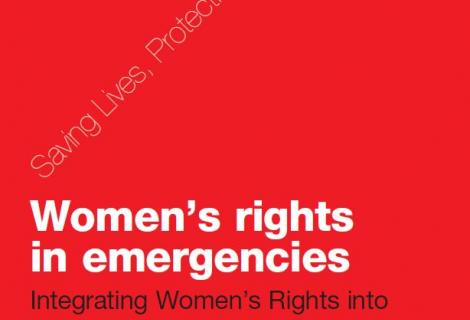
It is widely acknowledged that emergencies have a differential impact upon women, men, girls and boys. The social, cultural, political, economic and ecological context both before and after emergencies influences the vulnerability of different groups.
Women are typically regarded as a “vulnerable group” in emergencies. Pre-existing inequalities, structural discrimination and the perceived lower status of women within some societies along social, economic, cultural and political lines increases women’s vulnerability to emergencies.
Emergencies are often a time of great social upheaval. They also present an opportunity to redress the existing inequalities between men and women, through the belief and commitment of social transformation. The guidelines look at the protection, prevention and programming aspects of women’s rights in emergencies and provide practical steps to promote social transformation in favour of women’s rights.